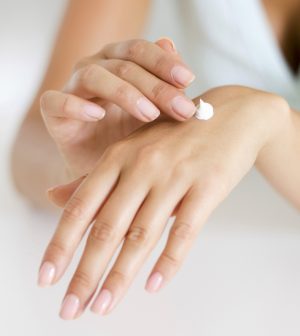- Finding Unshakable Power in a World That Wants to Pull Us ApartPosted 6 months ago
- What could a Donald Trump presidency mean for abortion rights?Posted 6 months ago
- Financial Empowerment: The Game-Changer for Women in Relationships and BeyondPosted 7 months ago
- Mental Health and Wellbeing Tips During and After PregnancyPosted 7 months ago
- Fall Renewal: Step outside your Comfort Zone & Experience Vibrant ChangePosted 7 months ago
- Women Entrepreneurs Need Support SystemsPosted 7 months ago
Morning Practices for Great Skin

By Matilda Davies
Who among us doesn’t want to improve the look and health of our skin? Effective skin care demands mindfulness and routine. While we can’t eliminate exposure to sunlight and the chemicals and harmful bacteria and chemicals that build up on our skin as a result of living our daily lives, there are steps that can be taken to reduce their damaging effects, and it starts with a thoughtful morning routine.
Establishing a healthy morning practice for great skin is simple and sustainable. Here are the steps you should take every morning to achieve healthy, glowing skin.
Start the night before
Sleep has a profound effect on the appearance and health of your skin, and lack of sleep can show up on your face in a single night. Research shows that getting a poor night’s sleep can lead to dark circles, puffy and swollen skin, fine lines and wrinkles, sagging eyelids, and paleness.
A great morning skincare routine absolutely begins the night before. Get a good night’s sleep, both in quality and length. A recent survey showed that many Americans wish they could get better sleep, and even fewer are getting enough.
You can improve your chances of getting a good night’s sleep by:
- Prioritizing sleep. Make it a part of your schedule to go to bed in time to get enough sleep. If you need to actually block out time on your calendar, do it.
- Starting a mindfulness Incorporating into your day things like yoga, meditation, exercise, quiet time, and alone time can help you ease stress and anxiety and fall asleep faster.
- Decreasing alcohol intake. While there is some evidence that a glass of wine in the evening might help you fall asleep more quickly, it will harm your ability to get high quality sleep. Alcohol is also anything but good for your skin.
- Research shows that a regular exercise practice can help you fall asleep more quickly at night. Exercise also increases circulation, which is great for the skin.
Routine fights stress
Stress is the enemy of great skin. Stress can cause breakouts, rashes, hives, and even fever blisters, and for individuals with psoriasis, rosacea, and eczema, stress and anxiety can exacerbate those conditions.
By fostering and maintaining a regular morning routine, you can reduce stress that will not only benefit your skin health, but also your physical, mental, and emotional health as well.
Beginning your day with a routine that includes waking up slowly, light exercise, meditation, and a healthful breakfast is a great way to practice morning skincare.
Go with water—before you hit the coffee
Staying well hydrated improves the health of your skin, so before you go for that cup of coffee in the morning, opt for a glass of water first.
Drinking water increases circulation, which allows your body to flush toxins and impurities, and that includes your skin. When you get dehydrated, your blood begins to pull water from your skin cells in order to keeps things flowing as they should, which means dryness, decreased elasticity (i.e., sagging), and wrinkles.
By staying hydrated, you can prevent breakouts, avoid dry patches and peeling skin, and fight unwanted wrinkles.
Use a gentle, derm-tested cleanser
While you’re asleep, your skin produces repairing oils that keep your skin from getting irritated and dry. Those oils are good, but you won’t need them during the day.
Wash your face each morning with a gentle daily cleanser that’s dermatologist tested and does not strip your skin of valuable nutrients and is free of sulfates, parabens, comedogenic oils, soaps, and fragrances.
Your skin does need natural oils to stay moist, healthy, and glowing, so take care to not strip it entirely. If you have especially dry or sensitive skin, some dermatologists will recommend cleansing only once a day in the evening to remove the oils and impurities your skin has collected during the day.
Wear sunscreen—every day
The American Academy of Dermatology (AAD) recommends that everyone wear sunscreen on their face every day. The sun’s ultraviolet rays not only lead to fine lines and wrinkles, prolonged exposure can produce sunspots and is also linked to deadly skin cancers. The AAD recommends using a sunscreen that protects against both UVA and UVB rays (also known as broad-spectrum sunscreens), has an SPF of 30 or higher, and is water resistant.
Because the skin on your face tends to be more sensitive and is more prone to clogged pores and dryness, be sure to use a sunscreen that is formulated for use on your face.
********
 Matilda lives in Raleigh, North Carolina, where she writes about great homes, health, and wellness. In her free time, she enjoys yoga, hiking, and walking her dogs. You can see more of her work here.
Matilda lives in Raleigh, North Carolina, where she writes about great homes, health, and wellness. In her free time, she enjoys yoga, hiking, and walking her dogs. You can see more of her work here.
Follow her on Twitter: @MatildaLDavies
Instagram: @matildaleighdavies






